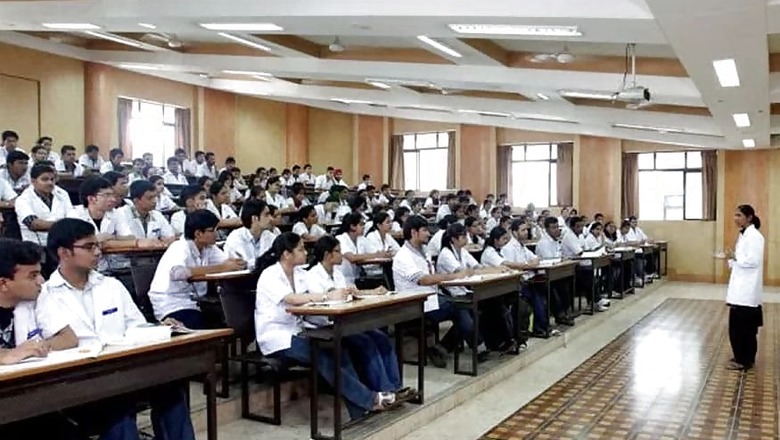
views
New Delhi: The Union Cabinet on Wednesday struck down the 'bridge course' that would have allowed AYUSH practitioners to practice and prescribe allopathic medicine, from the National Medical Commission Bill. Approving certain amendments in the NMC Bill, the Cabinet left it to the state governments to take necessary measures for addressing and promoting primary health care in rural areas, said a government statement.
The Cabinet essentially approved the recommendations of the Parliamentary Standing Committee report that had asked that a course to teach AYUSH practitioners modern medicine not be a mandatory part of the Bill. The report had come out on March 20th.
The centre had included this provision as a way to plug the gaps in health care manpower, especially in rural areas. This had not gone down well with allopathic doctors across the country, with the Indian Medical Association -- a voluntary organisation of doctors and private health establishments -- leading the protests against this provision.
The Cabinet also took into account the Parliamentary Committee report's recommendation of increasing state representation in the Commission, increasing state and union territory nominees from three to six. The NMC will now comprise 25 members, of which at least 21 will be doctors said the statement.
The Cabinet also made the final graduation exam of the MBBS degree a common exam across the country, to be called the National Exit Test (NEXT). Instead of floating a separate licentiate exam, after the MBBS final, for students to be able to practice medicine, the Cabinet combined the two into NEXT.
NEXT would also serve as the screening test for doctors with foreign medical qualifications in order to practice in India, said the statement. The Cabinet upped the number of seats in private colleges for which fees has to be regulated from 40 percent to 50 percent.
It also put in place a system of different options of "reasonable monetary penalty, reducing intake, stoppage of admission leading up to withdrawal of recognition" for colleges that did not comply with norms.
This system replaced a monetary penalty, ranging from one half to ten times the annual fee recovered from a batch. It came down harder on quacks, however, penalising unauthorised practice of medicine by imprisonment of up to one year along with a fine extending up to Rs. 5 lakhs.

















Comments
0 comment